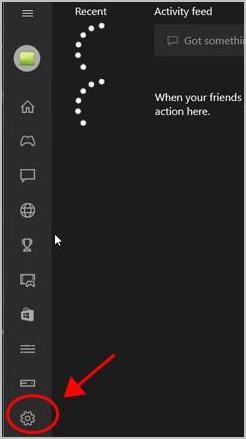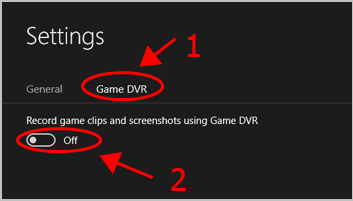The game Apex Legends has a cult following amongst gamers. People spend hours and hours playing the game so it can be very annoying when during an intense moment Apex Legends starts lagging.
You do not need to get frustrated if Apex Legend is lagging just follow these easy methods to solve the issue.
Contents
Why is Apex Legends lagging?
There are two main reasons why Apex Legends will lag on your PC either your PC hardware doesn’t meet the system requirements particularly RAM, CPU, and graphics card, or the in-game settings are not adjusted properly to support the game.
So first and foremost check if your computer system satisfies the requirements need to play Apex Legends or else here is what you can do if Apex Legends is lagging.
Minimum PC requirements for Apex Legends
| OS | 64-bit Windows 7 |
| CPU | Intel Core i3-6300 3.8GHz / AMD FX-4350 4.2 GHz Quad-Core Processor |
| RAM | 6 GB |
| GPU | NVIDIA GeForce GT 640 / Radeon HD 7730 |
| HardDrive | Minimum 22 GB of free space |
| GPU RAM | 1 GB |
Method 1: Install the latest patch
Game developers frequently release patches to improve their games and fix any issues, so one of the most common reasons for Apex Legends lagging is that you are trying to load an outdated version of it.
Check if any updates are available for Apex Legends in Origin or from the official website. If there is an update then install it and relaunch the game to see if it fixes the issue or else try out the next method.
Method 2: Update your device drivers
You will face lagging issues on your computer if its device drivers are outdated or missing. Network card driver for internet lagging or Graphics card driver for FPS drops is two of the main device drivers that need to be updated. So to make sure that games like Apex Legends do not lag you should keep all device drivers updated.
To update your device driver, open the website of your device manufacturer, look for the latest version of your driver, then download and install it on your computer.
Restart your computer and launch Apex Legends and if it still lags then try the next method.
Method 3: Configure Apex Legends to High Performance
If Apex Legends is lagging try configuring the settings in your computer to make sure the game functions to its highest performance.
Here is how you can do so:
Step 1) Type ‘Graphics settings’ in the search box on your desktop, then select Graphics settings.
Step 2) Make sure you set the Classic app under Choose an app to set preference, then select Browse.
Step 3) Browse to the file location where you have saved the Apex Legends application. In my pc it is saved here, C:\Program Files (x86)\Origin Games.
Step 4) Select Apex Legends .exe.
Step 5) Under the Graphics settings you will find the Apex Legends app is listed. Select it and click Options.
Step 6) Choose the option High performance and Save it.
Step 7) Then Restart your computer and open Apex Legends to see if the lagging issue is solved.
Method 4: Configure Apex Legends in-game settings
To enjoy the best gaming experience for Apex Legends you should configure its in-game settings.
Here is how you can do it:
Fix 1. Configure the FPS settings for Apex Legends
Step 1) Open Origin, and select My Game Library.
Step 2) Right-click on Apex Legends, and select Game Properties.
Step 3) Untick the box beside Enable Origin In-Game for Apex Legends. Then select Save.
Step 4) Select Advanced Launch Options.
Step 5) +fps_max 60 Enter this command in Command line arguments and click Save.
Step 6) Quit Origin then restart the app.
Step 7) Open Apex Legends and play it for a while to see if the lagging issue is solved.
Fix 2. Set the Apex Legends video settings to Low
If the graphics setting of Apex Legends is too high for your computer hardware to handle then you will face lagging issues, that include the FPS drops, adjust your graphics settings to low to solve the issue.
Step 1) Open Apex Legends Settings > Video.
Step 2) Switch V-Sync to Disabled.
Step 3) Switch Model Quality to Low.
Step 4) Switch other advanced video settings to its lowest.
Step 5) Play Apex Legends to test if the issue is solved.
Method 5: Disable full-screen optimizations
The operating system in your computer can optimize the performance of games when they are running in full-screen mode but it can cause games to lag. Disable full-screen optimizations to see if it fixes the issue.
Here is how you can do so:
Step 1) Browse to the file location where Apex Legends is saved on your computer. This is where it is saved on my computer. C:\Program Files (x86)\Origin Games\Apex.
Step 2) Right-click on Apex Legends.exe and click Properties.
Step 3) Select the Compatibility tab, then tick the box beside Disable full-screen optimizations. Then select Apply.
Step 4) Make sure to save the changes before you restart your computer.
Step 5) Test if the lagging issue is solved by relaunching Apex Legends.
Method 6: Disable Game DVR in your computer
If the Xbox app is installed in your Windows PC then DVR is automatically enabled in your computer, however, you will have to manually do so for a few games.
Here is how you can disable DVR in Xbox to fix issues like game lags or FPS drops.
For Windows 10 Build 14393 and earlier users
Step 1) Type Xbox in the search box on your desktop, and open it.
Step 2) Make sure you have logged into your Microsoft account.
Step 3) Select the Gear button on the left to open Settings.
Step 4) Select the Game DVR tab, and turn it off.
Step 5) Then Restart your computer and see if Apex Legends has stopped lagging.
Tip: If you have no use for the Xbox app on your computer, uninstall it for the better gaming experience.
For Window 10 later than Build 14393 users
Step 1) Press and hold the Windows logo key and I, simultaneously to open Settings.
Step 2) Select the Gaming section.
Step 3) Select Game DVR which is on the left, and make sure to turn off Record in the background during ‘I’m playing a game.’
Step 4) Then Restart your computer and launch Apex Legends to check if the issue is solved.














